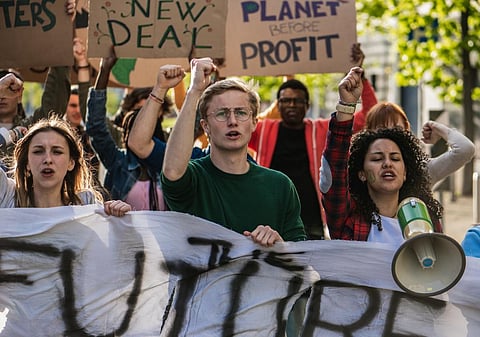

ClientEarth, a global environmental organisation, along with Greenpeace, WWF and 12 other non-profits took a fresh legal stand against INEOS, the British petrochemicals giant which continues its efforts to build what would be Europe’s biggest plastics project.
The fresh legal action by the NGOs challenges the Flemish Authority’s approval of INEOS’ new permit on January 4, 2024 for the €3 billion plastic project in Belgium.
The project in the Port of Antwerp, Belgium received the conditional permit. However, it was declared illegal by a Belgian court in July 2023, as the nitrogen pollution created by the plant would breach the EU Habitats Directive, the court noted.
Granting the permit, government agencies stated that the ethane cracker “does not significantly affect the conservation objectives of the special protection zones in Flanders”. According to media reports, INEOS, too, clarified that nitrogen deposition from project titled Project One will be ‘negligible’. The ethane cracker converts ethane into ethylene, one of the most widely used basic chemicals in plastic manufacturing.
Since November 2020, the NGOs group has consistently taken legal action to block INEOS’ ‘Project One’ plastics facility in the Port of Antwerp, Belgium and the court order in July 2023 was a victory for the civil society groups.
Now the new legal action on February 22, 2024 comes after an over three-year legal battle against INEOS’ ‘Project One’. The NGOs argued that the Flemish Authority’s approval of the project without first demanding a full assessment of its impacts was illegal under both European Union and national laws.
The project was approved without considering its real impact on the environment, climate and the people, along the full value chain, according to non-profits.
“Plastics are an environmental issue, a people issue and a climate issue. Allowing what would be the largest plastics facility in Europe to go ahead would not just be a local disaster, but a global affront,” said Tatiana Lujan, ClientEarth lawyer, in a statement.
“Project One would help fuel more plastic production when we’re already at saturation point. Plastics are made from fossil fuels. So, their production is catastrophic for the climate at every stage. The far-reaching consequences of this project are very real and cannot go unaccounted for,” she stated.
According to Lujan, the changes made to the project’s new permit are just window dressing. The fact remains that Project One is both hugely destructive and completely unnecessary, the lawyer said.
“If Project One is built, it would become one of the top three biggest sources of nitrogen pollution in the Brabantse Wal protected area in the Netherlands. This protected site is home to century-old oaks that already suffer from too much nitrogen deposition – they’re essentially being drowned in fertiliser.”
“Project One will only further exacerbate the problem. No amount of tinkering to its permit will make this cross-border pollution miraculously go away,” said Stijn van Uffelen from the Mobilisation for the Environment (MOB).
Following the Council of Permit Disputes’ declaration that the lawsuit is valid, the Flemish authorities may present their counterarguments to the groups.
Once the legal action is declared admissible by the Council of Permit Disputes, the Flemish authorities are entitled to submit their arguments against the groups’ case.